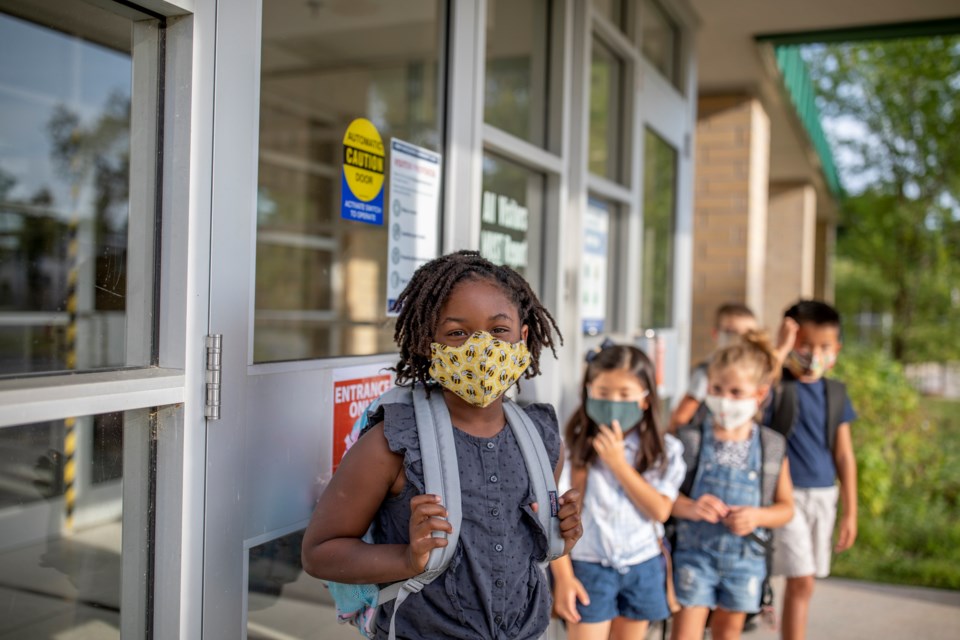Contrary to the ideological divides among Canadian news media when it comes to multiculturalism, university students are not only enthusiastic about sharing their own cultures with each other but are keen to learn about new ones.
That’s what a pilot study at the University of Winnipeg conducted earlier this year whose objective was to gauge how undergraduate students think and feel about multiculturalism, cultural identity, diversity and inclusion.
It involved 10 undergraduate students who served as the focus group by participating in two one-hour long discussions revolving around culture and heritage.
“We found broad agreement on the importance of multiculturalism both from those participants who maintain a strong connection to their heritage culture and value that connection, and among those who shared stories about their vibrant and diverse cultural practices,” says Andrew McGillivray, a faculty member and one of the study’s coordinators.
Their study, which was discussed earlier this year at the 24th Metropolis Canada Conference in Vancouver, British Columbia, was influenced by the findings of a 2021 study that analyzed how the term “multiculturalism” was perceived by nine major daily Canadian newspapers between 2010 and 2020.
The ideological divides that the study revealed would leave someone with the “preliminary conclusion that our society is divided along these ideological lines as it relates to multiculturalism,” said McGillivray.
But what this latest study revealed instead is that there was a “definite” eagerness amongst the undergraduate participants – considered a representative sample of young people in a broader Canadian culturally diverse society — to share their cultures with others, said Helen Lepp Friesen, also on the faculty at the University of Winnipeg.
“The topic of heritage and identity was really important to them,” she explained.
“They were good listeners, they were honest, they were authentic, they were transparent about their cultural heritage and they’re interested in sharing their culture with others.”
Common thread
The common thread running through all 10 participants — seven of them had arrived in Canada in the last 10 years from places including the Philippines, Pakistan and Nigeria — was a “strong connection to their birth country,” said Friesen. This could include “visiting frequently” and actively keeping in touch with family back home.
In their responses, students talked about where they, their parents and their grandparents were born, discussing everything from language to festivals, traditions, worshiping deities and holy books.
“The ones that talked about strong connections expressed fluency in their home cultural language. They practiced important tenets of their culture – like listening to music in their language,” said Lepp Friesen.
For instance, one Filipino participant born in that country noted how they still frequently listen to Filipino music and that, despite living in Canada for six years, they still consider the Philippines to be home.
Others expressed belonging to a blend of cultures, such as one who identified as a member of the Sikh community but “grew up in a Hindu community, so I’m a blend of both.”
“They were exposed to different cultures growing up, their parents were of different religious affiliations,” said Friesen. “They expressed openness and interest in experiencing other cultures through festivals and friends.”
Combating culture loss
However, others also talked about lost connections and the difficulty of having to adopt a new culture altogether.
For example, the participants whose great grandparents immigrated to Canada in the early 1900s described experiencing language loss and a sense of disconnection from their family heritage.
A participant whose ancestors were Ukrainian lamented that most of that culture has been lost through the generations.
“And they weren’t okay with that loss,” Lepp Friesen said. “They felt sad about that loss of culture.”
Participants also expressed concern about misappropriating other cultures, which resulted in hesitance in engaging in cultural activities that were not of their own.
But they did note that they were interested in learning about other cultures by participating in festivals, so long as they had a friend from that culture introduce them to it.
Ultimately, says McGillivray, what these results show is that even for young people who have lost a sense of connection to their homelands after going through the process of becoming ‘Canadian,’ “there was still an enthusiasm for diversity and the enrichment of Canada’s collective culture of diversity and inclusion.”



